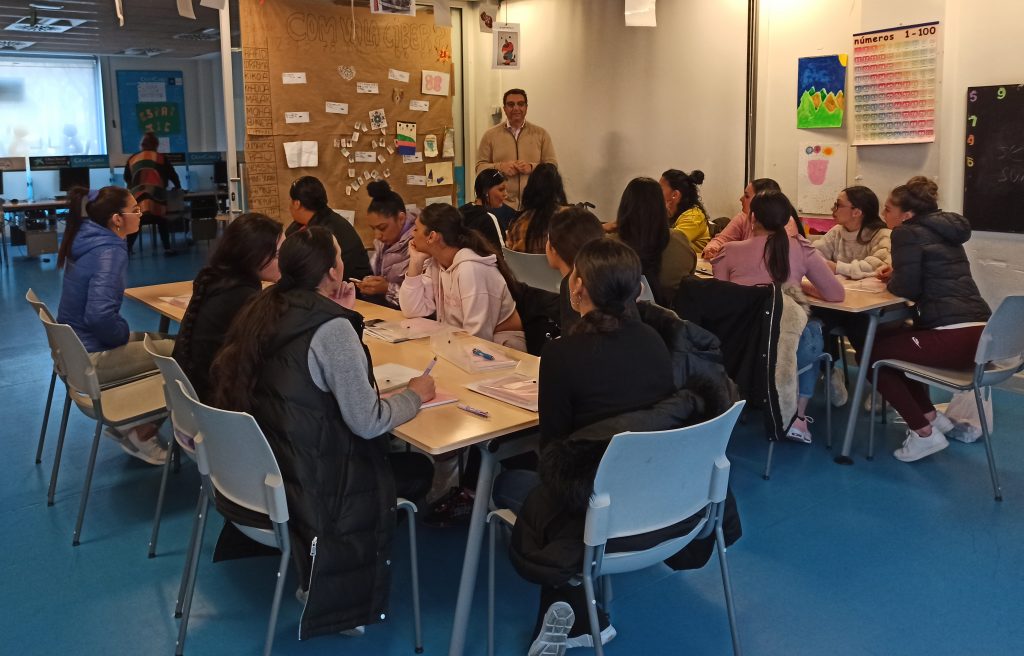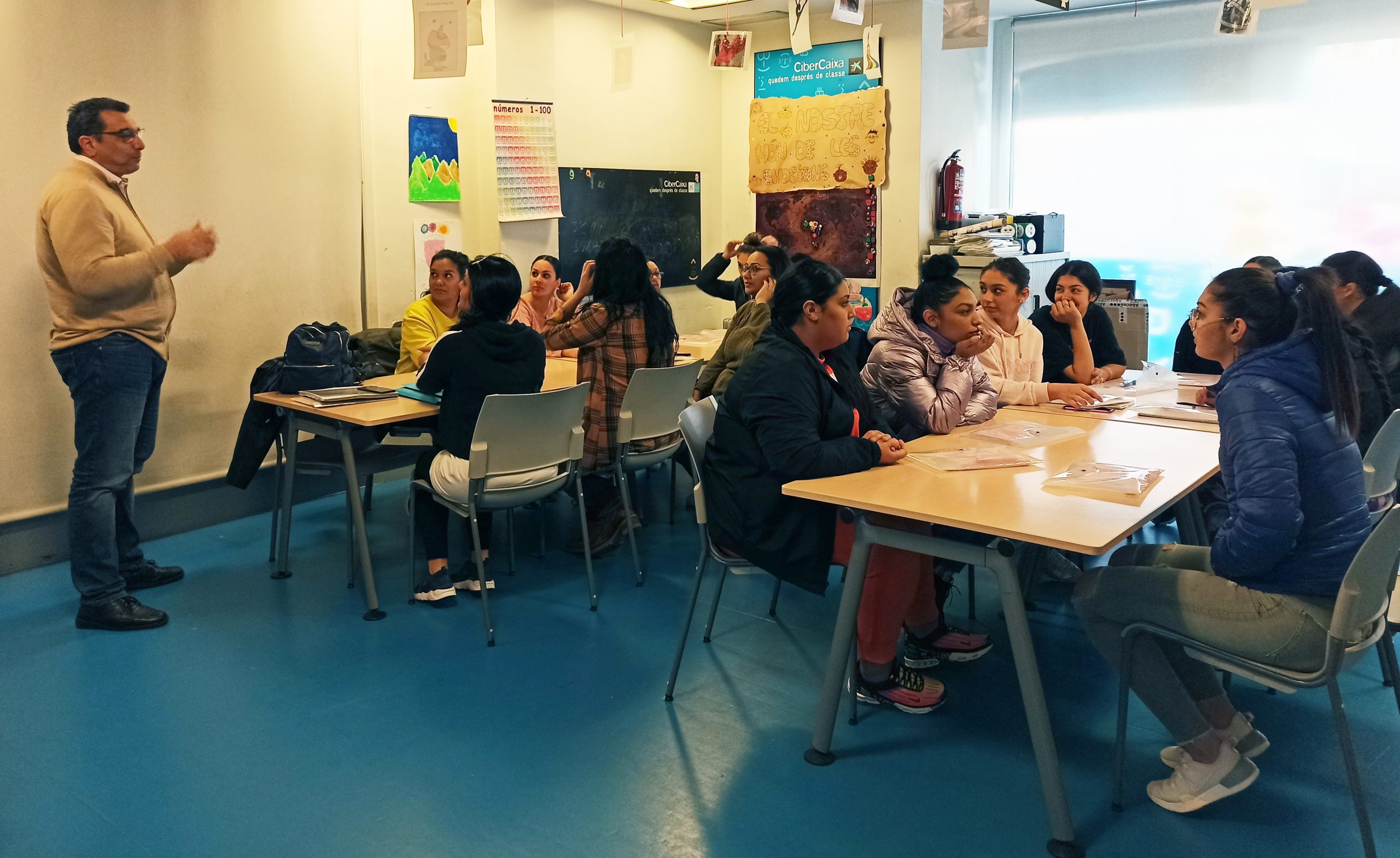A group of 15 people, all Roma women, met on February 27. 2020. in the CiberCaixa of Sant Roc neighborhood for a training on Roma youth participation from a gender perspective. The participants had very low knowledge of participation and even in this low knowledge we detected a huge unbalance of knowledge and experience in the group of people interested in the training. In our past experience, when there is a huge difference of knowledge, participants with fewer opportunities tend to not join the debate.
In order to activate them and create a good place to discuss and debate, Esther Fernández from FAGiC spoke about Romani feminism and presented the history of Roma women.
The next part focused about the obstacles and ways of exclusions that women face regarding participation and in the political sphere and it was discussed how this affects Roma women. Despite exclusion, as Roma women are warriors, some find ways to reach important positions, and the trainer showed examples of different Roma women in politics. Participants didn’t know that in the Spanish Parliament there are three Roma persons and two of them are Roma; they didn’t know about local representatives who are Roma woman and they didn’t know anything at all about the European Parliament.
In the next session, we wanted to listen to the girls, so we have started a brainstorming session to collect their ideas and opinions how to be more participative. They all agreed that for them participation is not possible if they don’t achieve a more stable economic situation and they don’t see activism as a way to better their situations. They all agreed that education can be a form of participation, meaning that being informed and aware is crucial to then participate in the socio-political debate, but as said education and job stability is their first priority more than joining an organization or an informal group.

The training was organized by RGDTS in co-operation with FAGIC as part of the Roma Youth Voices project, funded by the Rights, Equality and Citizenship Programme of the DG Justice, European Commission.



